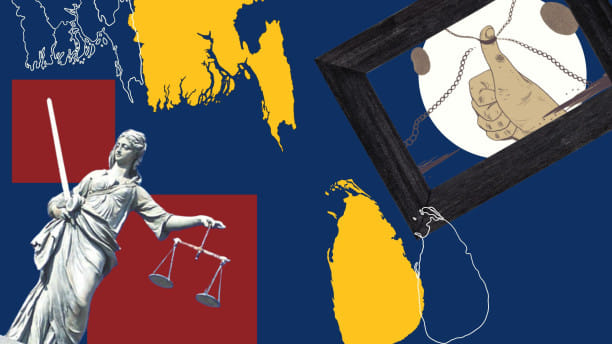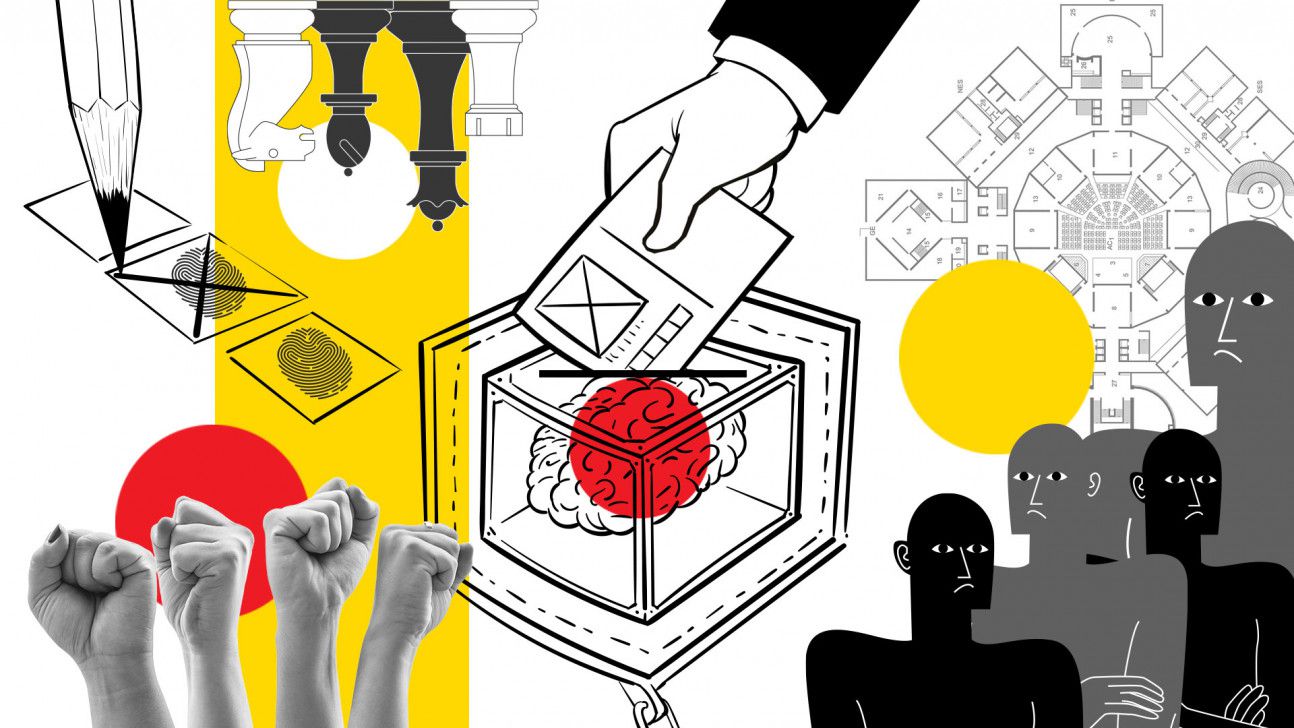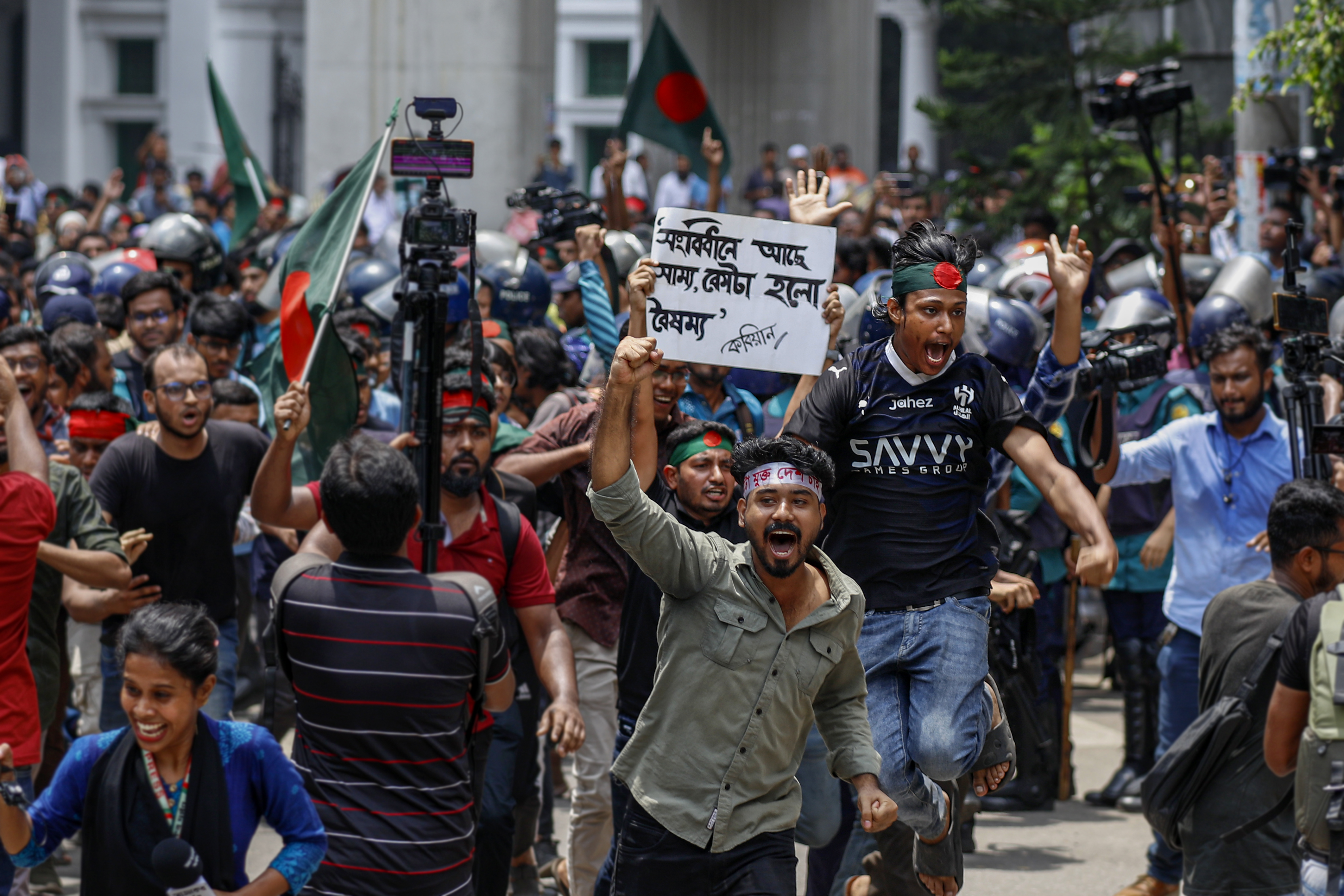Reform the system, politics will fall in line

I begin this article with the following friendly piece of advice from a well-wisher from Sri Lanka, a country that has nothing but the best of interests for Bangladesh and its people at its heart.
"To my dearest Bangladeshis,
I am overjoyed by what you have achieved. Truth be told, given my experience with the Monarchy in Bangladesh, I didn't think such an outcome was possible.
But let's remember, this victory is just the beginning—10 percent of the journey. The real challenge lies ahead. This is where we, Sri Lankans, faltered.
We once chanted that we didn't need anyone in parliament to run our country, and now, two years later, we're left with no option but to vote for the same old faces. Our revolution, in essence, accomplished nothing.
The Bangladeshi revolution, driven by students, now needs structure and formality. You can't depend on the current parliamentarians to bring about the change you seek. The youth, the educated, and those truly desiring change must take the reins.
Do not ease up now—the war has just begun… Set aside your ideologies and focus on shaping Bangladesh into the nation you want for your children."
The message conveyed above is as potent in substance as it is relevant to the dramatically changed situation in Bangladesh post-August 5. It is, at the same time, philosophical and emotion laden. Importantly, the author speaks from firsthand experience, as Sri Lanka underwent a similar people's revolution only two years back when the sitting president had to flee the country in the face of widespread public protests. The author's frustrations with the faltering of the revolution in the teardrop-shaped gem in the Indian Ocean is evident—and they hope the mistakes made there would not be repeated here.
For us in Bangladesh, comparisons with Sri Lanka must also be viewed alongside our own "1/11" experience and what went wrong with it. To begin with, unlike the 2007-08 "government," the present administration must not set any arbitrary deadline for the end of the interregnum. Instead, it should set about incorporating a set of fundamental reforms, focusing on eliminating the zero-sum game that the existing political structure in Bangladesh enables.
A genuine friend of Bangladesh, who had a ringside view of events, believes that "during the 2007-08 period, nobody in Bangladesh or abroad actually believed that the chief adviser, or his colleagues were calling the shots. While some of the advisers played supporting roles in that administration, in the end, decisions were made by the army chief and a small circle of uniformed subordinates (who often provided him with conflicting advice)." This, the friend believes, resulted in the notorious "minus two" policy, which was doomed to fail as it was shortsightedly aimed at reforming political parties and not the system.
This ultimately weakened those within the parties who were interested in reforms, and it made "reform" sound like a dirty word. The 2007-08 "government's" insistence that it was not "political" reflected a fundamental misunderstanding of how government works. While the caretaker regimes are not partisan (in traditional Bangladeshi terms), by their very nature, any government is political, and therefore all its actions impact the political structure.
This is not to say that the military has no role in the current scenario. Rather, the military must be subordinate to the civilian government and play a supporting role—acting only if and when requested by their civilian superiors.
Some of the basic reforms that the interim government must set in pace may include, but are not necessarily limited to, the following:
First, all future parliamentary elections should be held under a non-party caretaker government, the term of which should not exceed 90 days. The modalities of such a caretaker government may be worked out in consultation with all relevant stakeholders, including all registered political parties and civil society. Such a system will not only ensure the legitimacy and credibility of the elections but also greatly enhance the role and image of the Election Commission. Hopefully, this will also eliminate the prevailing and pervasive culture of deep distrust among the political parties.
Second, the existing "first-past-the-post" system should be replaced with a system of proportional representation in parliament. This will eliminate the "winner-takes-all" phenomenon that debilitates the political culture in Bangladesh. Since Kazi Habibul Awal has already written extensively on this topic, I choose not to delve too deeply here, except to add that the Sri Lankan model may be studied as a possible template.
Third, it is high time that Bangladesh has a bicameral legislature that most, if not all, developed democracies have. While the structure and the terms of reference of such a legislature may be discussed and deliberated with all stakeholders, it will likely ensure government accountability—a feature that is currently conspicuous by its absence.
Fourth, Bangladesh, with a current population of more than 170 million and growing, must move towards creating elected provincial governments with proper devolution of powers. Sri Lanka, with a much smaller population, has provincial governments, even though the country had gone through a long and bloody civil war that threatened its very territorial integrity. The other model that could be looked at is the Indonesian one, where in addition to having a bicameral legislature at the centre, it has elected provincial legislatures and an elected governor.
The steps suggested above, if implemented in the right spirit, would take time to formulate. Therefore, setting any timetable for elections at this time would be ill advised. Once the necessary reforms are instituted, politics in Bangladesh will fall in line.
I have deliberately refrained from discussing the importance of ensuring the independence of institutions that belong to the state and not to any ruling party.
Last but certainly not least, the interim government should be prepared for the unexpected. Just as Sheikh Hasina never would have predicted the spark that ultimately lit the fuse that ended her regime, all governments must be ready to deal with any contingency.
Shamsher M Chowdhury, Bir Bikram, is a former foreign secretary of Bangladesh.
Views expressed in this article are the author's own.
Follow The Daily Star Opinion on Facebook for the latest opinions, commentaries and analyses by experts and professionals. To contribute your article or letter to The Daily Star Opinion, see our guidelines for submission.



 For all latest news, follow The Daily Star's Google News channel.
For all latest news, follow The Daily Star's Google News channel. 

Comments